A ray hits the y-axis making an angle θ with y-axis as shown in the figure. The variation of refractive index with x-coordinate is μ=μ0(1−xd) for 0≤x≤d(1−1μ0) and μ=μ0 for x<0, where d is a positive constant. The maximum x-coordinate of the path traced by the ray is
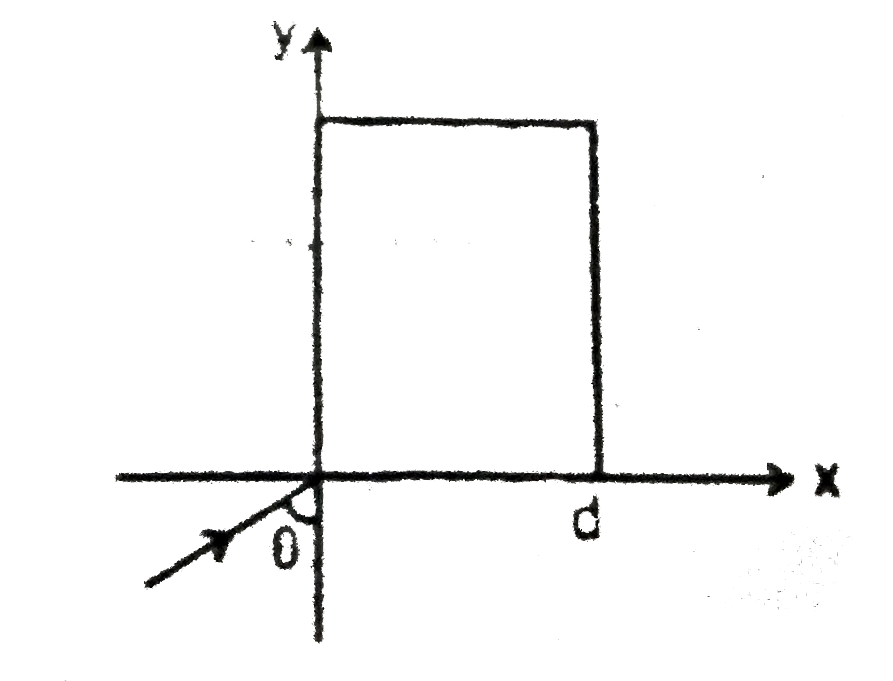
d(1−sinθ)
d(1−cosθ)
dsinθ
dcosθ
The correct Answer is:B
Snell's law =μ0sin(90∘−0)
=μ0(1−xd)sin90∘⇒(1−xd)=cosθ
⇒x=d(1−cosθ).
Topper's Solved these Questions
- DAILY PRACTICE PROBLEMBook:RESONANCEChapter:DAILY PRACTICE PROBLEMExercise:DPP No.26
Explore 9 Videos
- DAILY PRACTICE PROBLEMBook:RESONANCEChapter:DAILY PRACTICE PROBLEMExercise:DPP No.27
Explore 20 Videos
- DAILY PRACTICE PROBLEMBook:RESONANCEChapter:DAILY PRACTICE PROBLEMExercise:DPP No.24
Explore 9 Videos
- CURRENT ELECTRICITYBook:RESONANCEChapter:CURRENT ELECTRICITYExercise:High Level Problems (HIP)
Explore 21 Videos
- ELECTRO MAGNETIC WAVESBook:RESONANCEChapter:ELECTRO MAGNETIC WAVESExercise:Exercise 3
Explore 27 Videos
Similar Questions
A parallel beam of light travelling in x direction is incident on a glass slab of thickness t. The refractive index of the slab changes with y as μ=μ0(1–y2y02)where μ0 is the refractive index along x axis and y0 is a constant. The light beam gets focused at a point F on the x axis. By using the concept of optical path length calculate the focal length f. Assumef>>t and consider y to be small.
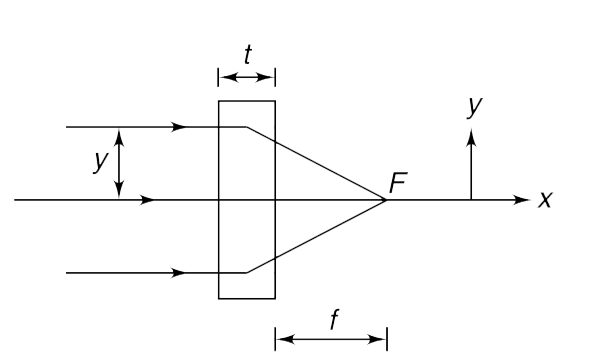
View SolutionThe refractive index of an anisotropic medium varies as μ=μ0√(x+1) , where 0≤x≤a. A ray of light is incident at the origin just along y-axis (shown in figure). Find the equation of ray in the medium .
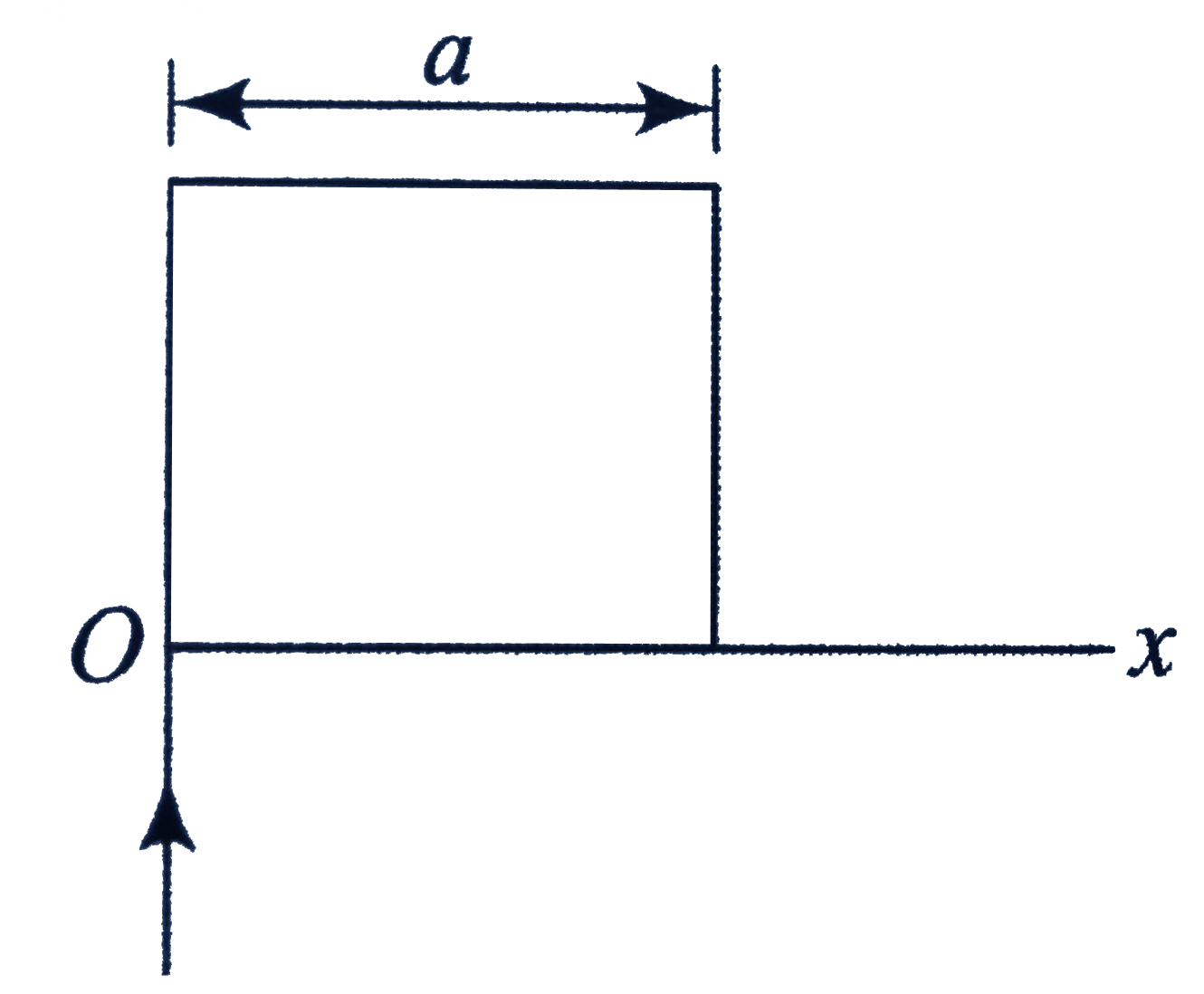
View Solution
Knowledge Check
If the behaviour of light rays is as shown in the figure. The relation between refractive indices μ,μ1 "and" μ2 is
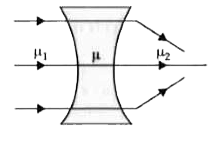 Aμ>μ2>μ1Bμ<μ2<μ1Cμ<μ2,μ=μ1Dμ2<μ1,μ=μ2
Aμ>μ2>μ1Bμ<μ2<μ1Cμ<μ2,μ=μ1Dμ2<μ1,μ=μ2If μ0 be the permeability and k0 , the dielectric constant of a medium, its refractive index is given by
A1√μ0k0B1μ0k0C√μ0k0Dμ0k0If μ0 be the permeability and k0 , the dielectric constant of a medium, its refractive index is given by
A1√μ0K0B1μ0K0C√μ0K0Dμ0K0
In the figure shown, if friction coefficient of block 1 kg and 2kg with inclined plane is μ1=0.5 and μ2=0.4 respectively, then
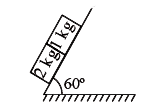
View SolutionA thin oil layer floats on water. A ray of light making an angle of incidence of 40∘ shines on oil layer. The angle of refraction of light ray in water is [μoil=1.45,μwater=1.33]
View SolutionA thin oil layer floats on water. A ray of light making an angle of incidence of 40∘ shines on oil layer. The angle of refraction of light ray in water is (μoil=1.45,μwater=1.33)
View SolutionThe relation between refractive indices u,μ1,μ2. if the behaviour of light ray is as shown in figure

View SolutionA light ray enters into a medium whose refractive index varies along the x-axis as n(x)=n0√1+x4 where n0=1. The medium is bounded by the plates x=0,x=1 & y=0. It the ray enters at the origin at an angle 30∘ with x-axis
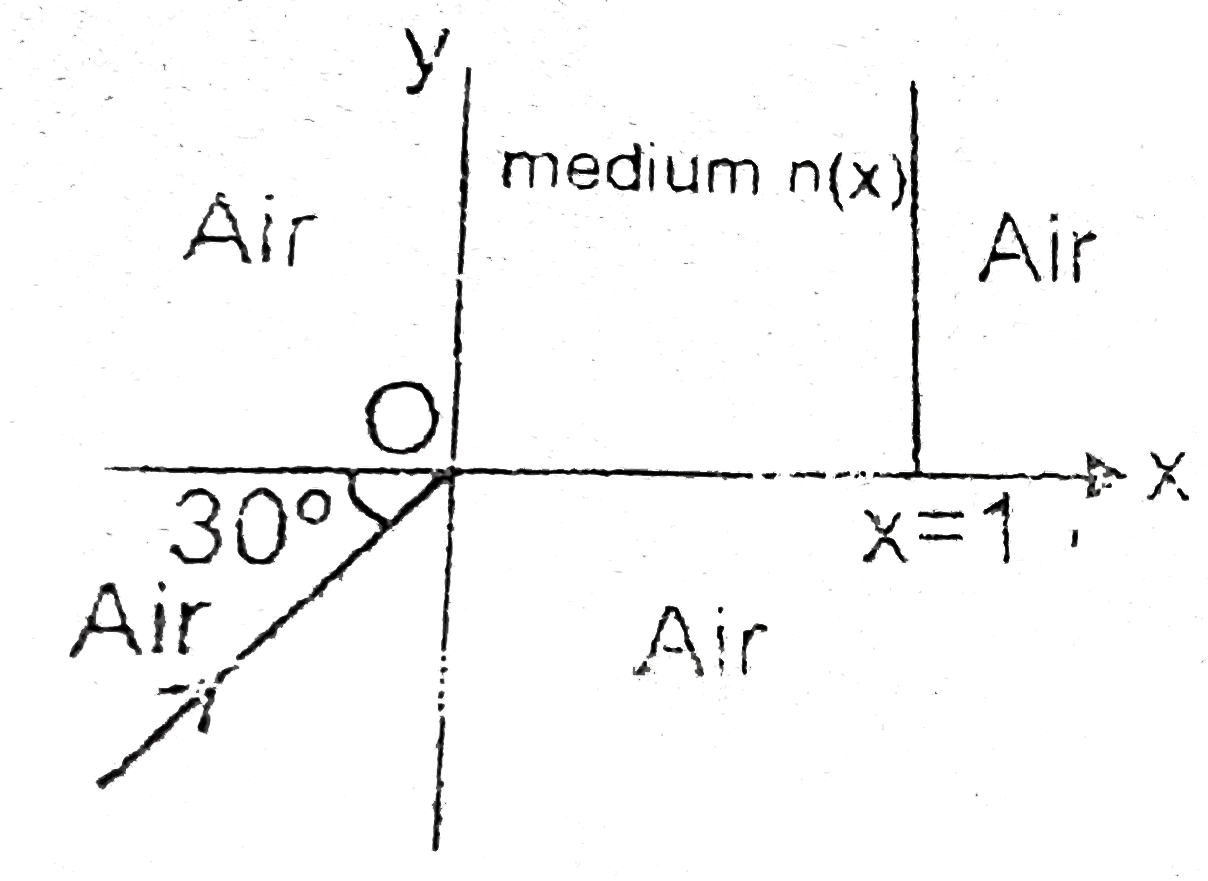
View Solution

